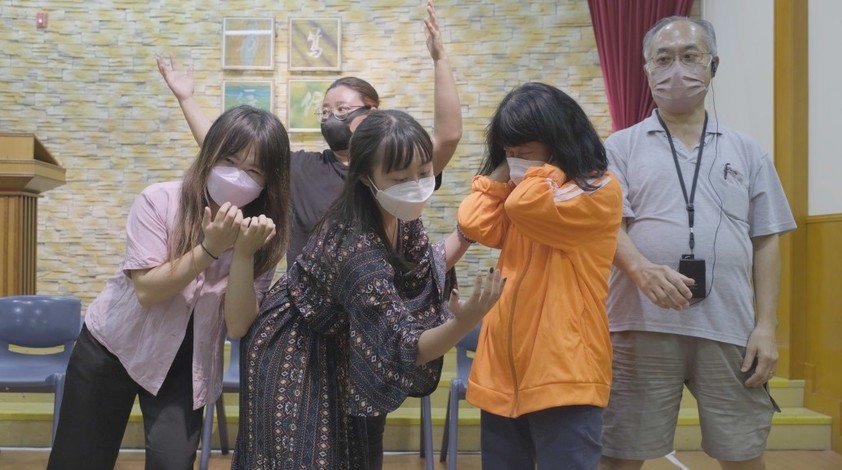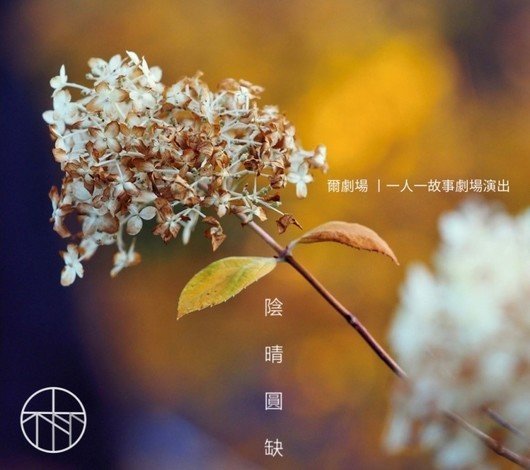Discover Hkbu
Promoting inclusiveness through Playback theatre
15 Nov 2021
It was the 24th of September–a cosy moon-lit Friday evening just after the Mid-Autumn Festival. The Reverend James Mau Memorial Chapel was full of people from all around the HKBU campus, and they gathered to watch a much-anticipated joint performance by HKBU students and disabled actors. With the aid of live musical instruments and props, the performing cast brought to life a series of touching and inspirational stories using a range of artistic methods, such as movement, singing and drama.
Exploring creativity and the self
The show was presented by StoryBox–a theatre company founded by the research group from the "Creativity, Self and Society" sub-theme, which is one of the six that underpin the HKBU Faculty of Arts' Niche Research Area of "Well-being, Value and the Public Good".
StoryBox is also part of "Exploring Creativity and Selves in Hong Kong Disabled Communities", a larger project in the Faculty that was initiated in 2020. Led by Dr Benedict Rowlett, Assistant Professor of the Department of English Language and Literature, and Dr Amy Lee, a former associate professor from the Department of Humanities and Creative Writing, one of the project's main objectives is to provide both students and members of disabled communities with the opportunity to participate in theatrical performances that encourage meaningful communication and personal growth.
Learning the ropes
Since the start of the 2021-22 academic year, students have gone through intensive training to learn about "Playback Theatre" — a form of improvisational theatre where actors listen, interpret, and use a range of expression methods and techniques to re-enact stories told live by the audience — under the instruction of HKBU alumna and experienced actress Ms Kiki Ng. During the process of learning and creating the show, the students worked in collaboration with 19 disabled actors who are either visually impaired or have hearing difficulties.
For the students, this was a novel experience that did not have the easiest of starts. In particular, the students were hesitant and fearful of being impolite or insensitive, due to their limited prior social contact with the disabled community. Yet, to Dr Rowlett and Ms Ng's delight, once the students began to familiarise themselves with the group, they became more relaxed and they began to identify more similarities than differences, and this helped them develop connections and build friendships.
"The project brought people together affectively," says Dr Rowlett. "Students have learnt to be caring and proactive through co-learning, sharing, and nurturing mutual understanding, which transformed this show into a profound learning experience for all sides."
Advancing our understanding of disabilities
Social dialogue and community storytelling are integral constituents of StoryBox. Not only does the project provide a platform for students and the disabled community to cooperate and get to know each other, but the involvement of disabled actors made StoryBox unique as the show encouraged the audience to reflect on the normative definitions and social concepts regarding disability and identity. Through an immersive experience that involved overcoming communication barriers and sharing stories, it also allowed the students and the audience to appreciate and learn more about inclusiveness and diversity.
"The actors have demonstrated that a disability can actually be turned into an ability for self-expression and social exchanges," Ms Ng says. "It is the lack of an enabling social environment that is often the constraint."
Going forward, Dr Rowlett and Ms Ng hope that StoryBox will serve as a parent project to many similar initiatives in the future. Their long-term vision is to develop more PlayBack groups that accommodate students as well as disabled people, and the aim is for them to perform for wider sections of society in Hong Kong. The power of the performing arts and narrative may also serve as a catalyst for fostering a better understanding and more respect for disabled communities, transforming the perception and culture surrounding disabilities in Hong Kong in the process.

